
OR
#MCC CEO in Nepal
MCC CEO Alice Albright: 'We agree with and have accepted' the 12-point explanatory note
Published On: October 3, 2023 10:06 PM NPT By: Kosh Raj Koirala | @KoshRKoirala
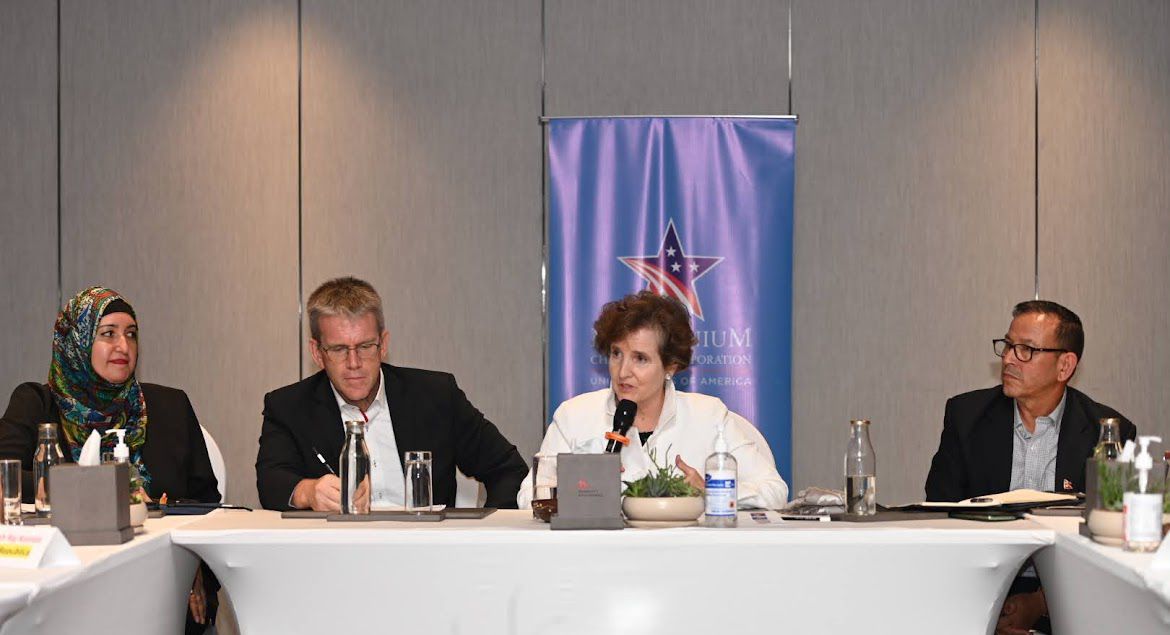
KATHMANDU, Oct 3: The Chief Executive Officer (CEO) of the Millennium Challenge Corporation (MCC), Alice Albright has said that the MCC fully concurs with the 12-point explanatory note, ratified by Nepal’s parliament along with the MCC Compact agreement.
In response to a query regarding the MCC's acknowledgment of the 12-point note, CEO Albright affirmed, "We agree with it. We have accepted it. You have heard from our comments thus far that we have started implementation."
This marks the first instance where a top MCC official has confirmed the full agreement and acceptance of the 12-point explanatory note, an integral component of the MCC Compact agreement, which was ratified by the federal parliament of Nepal.
Addressing concerns raised by a segment of political party leaders earlier last month, the US Embassy in Kathmandu had also clarified that the MCC acknowledged the receipt of the interpretive declaration last year, affirming that Nepal's Constitution takes precedence over the MCC Nepal Compact.
The House of Representatives (HoR) ratified the MCC Nepal Compact, a $500 million grant from the US designated for power and road infrastructure projects, on February 27, 2022, amid significant controversy and protests. This marked the most substantial financial commitment from the US to Nepal till date. The agreement, signed more than four years earlier, faced delays due to allegations that it undermined Nepal's sovereignty.
Ultimately, the agreement was approved alongside a 12-point explanatory note, reiterating its lack of military or security components and its detachment from the US Indo-Pacific strategy. It was clarified that Nepal retains the option to withdraw if the US violates this understanding.
The interpretative declaration featuring the 12 points, appended to the MCC Compact by the Cabinet, additionally specifies that Nepal's Constitution shall supersede the Compact and associated agreements. The declaration underscores Nepal's non-involvement in any American strategy, military or security alliances, including the Indo-Pacific Strategy, as a party to the Compact.
During a media interaction in Kathmandu on Tuesday, CEO Albright, who arrived in Nepal on Sunday on a four-day visit, expressed confidence that the projects under the MCC in Nepal would be completed within the five-year deadline starting from August 30, the official start of the implementation of the MCC projects.
Albright, after meeting with top leaders, including Prime Minister Pushpa Kamal Dahal, CPN-UML Chairman KP Sharma Oli, and Nepali Congress (NC) President Sher Bahadur Deuba, stated that all political leaders she met with are positive about expediting the implementation of the MCC projects. "The prime minister and former prime ministers are all in favor of the project. The project is being implemented. After talking to them, I am very excited and hopeful that the project will be completed within the time frame," she said.
Albright emphasized, "..all including Prime Minister Dahal, former prime ministers Oli and Deuba are very much in favor of the project. We have been given clear assurances about that. It has been very productive meetings. I think, based on the conversation we have had, we are very optimistic that the project would be off to a very good start."
She also noted that MCC legislations mandate finishing the MCC projects within five years. "It has already been 20 years. We have executed this type of project all over the world. We must finish this project within five years," she said. "There are definitely moments where it is stressful with a lot of complexities. But they get done in five years. We are very optimistic that this project will be completed in five years."
US Ambassador to Nepal Dean R Thompson, also addressing the interaction, mentioned that the procurement and contracting process for the MCC project has already begun. "MCA Nepal has initiated the tender process in a transparent manner after extensive discussions. We now have four years and 11 months. The work is being done in a timely manner," he said.
When MCA Nepal invited tenders for the construction of transmission lines some time ago, they received the lowest tender bid, which was 61 percent more expensive than the estimated cost. The MCA Nepal had estimated around $220.6 million for the construction of the 315 km long transmission line with a capacity of 400 KV. However, the lowest bid they received for the task was $365.9 million.
When asked if there were any faults in the project design leading potential bidders to bid a higher amount, CEO of MCA-Nepal Khadga Bisht claimed that there was no error in the design of the transmission line. He acknowledged there might have been some problems understanding the tender documents and its requirements.
Bisht also said that they are open to a re-tendering process after holding discussions with the potential bidders. "Even if the tender process is prolonged, we do not have a problem with the deadline. We have given more time to complete the tender process," he said.
Deputy Vice President of MCC Jonathan Brooks said that the current tender problem is not new to them. "This is not a new thing that happened only in Nepal. In other countries too, we have moved forward by finding solutions to such problems," he said.
You May Like This
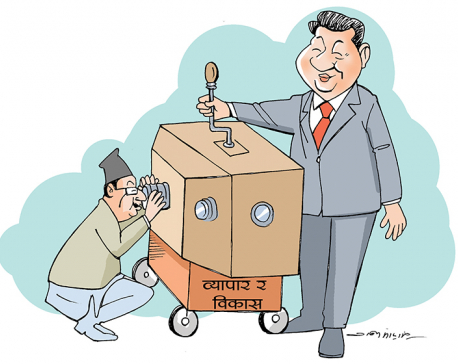
Nepal’s trade deficit with China widens
KATHMANDU, Sept 23: Nepal has not been able to benefit from trade with its northern neighbor China, which has the... Read More...
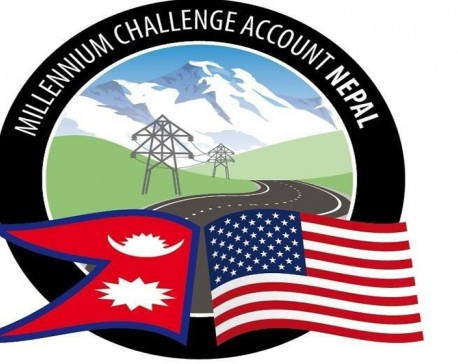
MCC acknowledges Nepal’s decision to ratify compact agreement
KATHMANDU, March 2: The Millennium Challenge Corporation (MCC) has acknowledged Nepal’s federal parliament’s decision to ratify the US $500 million... Read More...

Nov 9: 6 things to know by 6 PM today
Your daily dose of missed important news of the day. ... Read More...




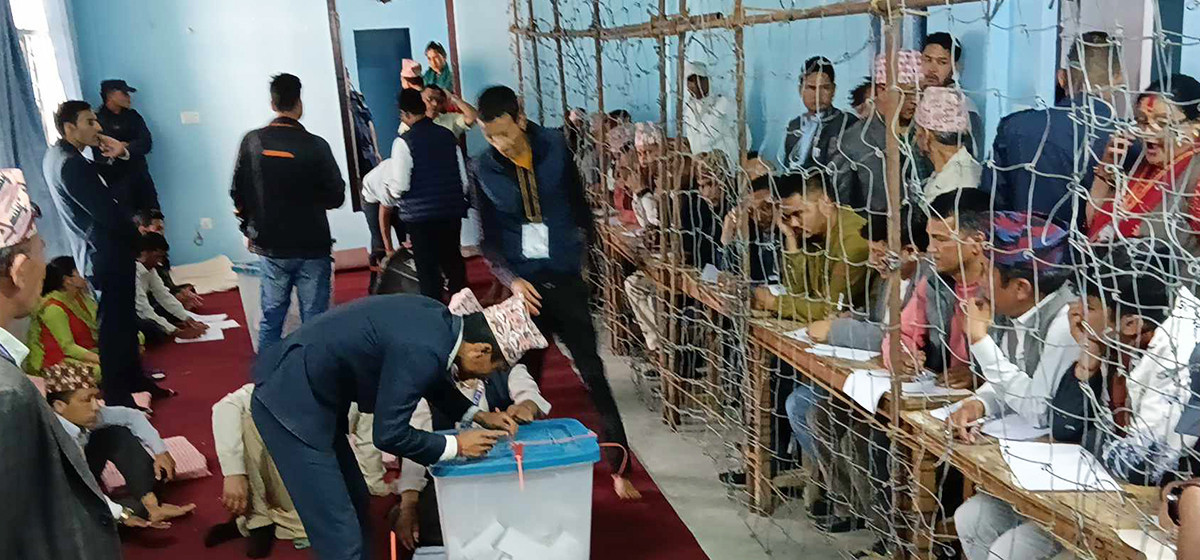
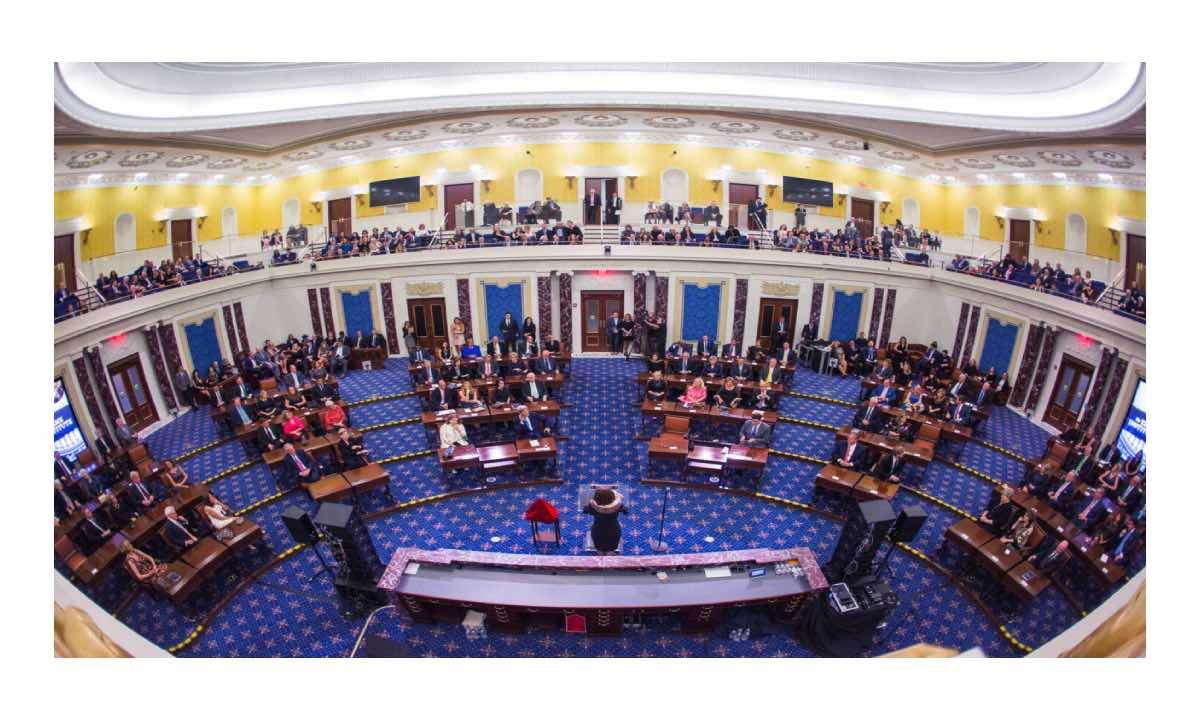
Just In
- Japanese Foreign Minister to visit Nepal next week
- Bajhang by-election update: NC candidate ahead by 249 votes
- Aid for war: On the United States Senate and aid package
- NEA Provincial Office initiates contract termination process with six companies
- Nepal's ready-made garment exports soar to over 9 billion rupees
- Vote count update: UML candidate continues to maintain lead in Bajhang
- Govt to provide up to Rs 500,000 for building houses affected by natural calamities
- China announces implementation of free visa for Nepali citizens











Leave A Comment